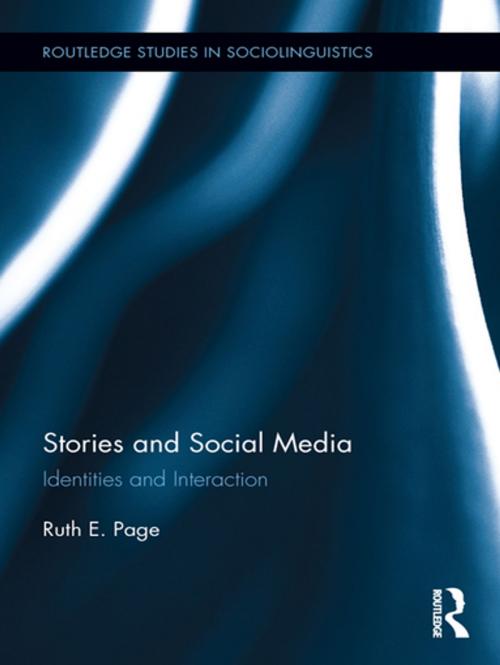Stories and Social Media
Identities and Interaction
Nonfiction, Reference & Language, Language Arts, Linguistics, Social & Cultural Studies, Social Science| Author: | Ruth E. Page | ISBN: | 9781136513534 |
| Publisher: | Taylor and Francis | Publication: | March 1, 2013 |
| Imprint: | Routledge | Language: | English |
| Author: | Ruth E. Page |
| ISBN: | 9781136513534 |
| Publisher: | Taylor and Francis |
| Publication: | March 1, 2013 |
| Imprint: | Routledge |
| Language: | English |
This book examines everyday stories of personal experience that are published online in contemporary forms of social media. Taking examples from discussion boards, blogs, social network sites, microblogging sites, wikis, collaborative and participatory storytelling projects, Ruth Page explores how new and existing narrative genres are being (re)shaped in different online contexts. The book shows how the characteristics of social media, which emphasize recency, interpersonal connection and mobile distribution, amplify or reverse different aspects of canonical storytelling. The new storytelling patterns which emerge provide a fresh perspective on some of the key concepts in narrative research: structure, evaluation and the location of speaker and audience in time and space. The online stories are profoundly social in nature, and perform important identity work for their tellers as they interact with their audiences - identities which range from celebrities in Twitter, cancer survivors in the blogosphere to creative writers convening storytelling projects or local histories.
Stories and Social Media brings together the stories told in well-known sites like Facebook and lesser-known community archives, providing a landmark survey and critique of personal storytelling as it is being reworked online at the start of the 21st century.
This book examines everyday stories of personal experience that are published online in contemporary forms of social media. Taking examples from discussion boards, blogs, social network sites, microblogging sites, wikis, collaborative and participatory storytelling projects, Ruth Page explores how new and existing narrative genres are being (re)shaped in different online contexts. The book shows how the characteristics of social media, which emphasize recency, interpersonal connection and mobile distribution, amplify or reverse different aspects of canonical storytelling. The new storytelling patterns which emerge provide a fresh perspective on some of the key concepts in narrative research: structure, evaluation and the location of speaker and audience in time and space. The online stories are profoundly social in nature, and perform important identity work for their tellers as they interact with their audiences - identities which range from celebrities in Twitter, cancer survivors in the blogosphere to creative writers convening storytelling projects or local histories.
Stories and Social Media brings together the stories told in well-known sites like Facebook and lesser-known community archives, providing a landmark survey and critique of personal storytelling as it is being reworked online at the start of the 21st century.















